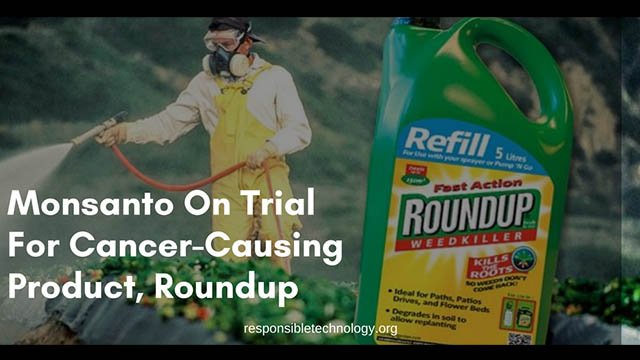Originally published on CBS News by Aimee Picchi
After it was introduced in the 1970s, Roundup was promoted as an “herbicide that gets to the root of the problem.”
Now, four decades later, manufacturer Monsanto will face a lawsuit that seeks to get to the root of another problem: whether the active ingredient in the weed-killer is to blame for a California man’s terminal cancer. If Monsanto fails to persuade the court that its product isn’t to blame, the agricultural company’s flagship product could take a hefty hit.
Billions in revenue could be at stake for Monsanto and its new corporate parent, German chemical giant Bayer, which closed its $60 billion acquisition earlier this month. While Monsanto doesn’t break out sales of glyphosate — the active ingredient in Roundup — the product delivered $4.8 billion in revenue in 2015. In its latest fiscal year, Monsanto cited higher global sales of glyphosate for helping lift total revenue by 8 percent.
Monsanto declined to comment on the potential sales impact, citing the trial proceedings. In a statement earlier this month, it told CBS News it denied the allegations.
“We have empathy for anyone suffering from cancer, but the scientific evidence clearly shows that glyphosate was not the cause. We look forward to presenting this evidence to the court,” it said.
Monsanto isn’t relying only on the court to prove its case. The company also boosted advertising about RoundUp and its safety in the first quarter by 17 percent, reaching $5.6 million in spending, compared with a year earlier, according to data from Kantar Media.
“Glyphosate was a linchpin for the overall company’s profits,” said Carey Gillam, the author of “Whitewash: The Story of a Weed Killer, Cancer, and the Corruption of Science,” which examines the science and controversies about Roundup, and the research director for U.S. Right to Know, a nonprofit that researches the food industry “You’ve seen a really full-court press by Monsanto. You’ve seen advertising on TV about the safety of the product and a whole array of outreach efforts to promote its safety.”
The court case will pit Dewayne Johnson, a 46-year-old groundskeeper, against the agricultural giant. Johnson claims Monsanto failed to warn of the “dangerous characteristics” of glyphosate and that Roundup products “were substantial and contributing factors” in causing his illness.
Johnson’s case will mark the first of thousands from other individuals who are suing Monsanto of failing to warn of what they argue are Roundup’s potential dangers. Opening arguments of Johnson trial are set for Tuesday, according to Courtroom View Network.


